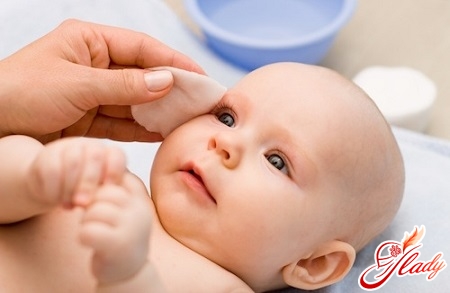 Despite the fact that the benefits of breastfeedingfeeding is obvious, very often, for one reason or another, a woman decides for herself: "I don't want to breastfeed my child." The reaction of others is often ambiguous. Someone supports the young mother, someone does not understand, and someone openly condemns. However, when deciding to transfer the child to artificial feeding, you should not be guided by the opinions of others. It is also extremely unwise to make a choice in favor of breastfeeding or artificial feeding, looking back at the experience and advice of relatives, friends and even your mother. All children are absolutely unique, and what was good for one child can cause serious harm to another baby. In addition, you should not be afraid that if you decide to feed your child with formula, others will consider you a bad mother, or, conversely, if you give preference to breastfeeding, you will be considered a hen. The only opinion you need to listen to is the opinion of your pediatrician, who monitors the development and knows the health characteristics of your baby. Many young mothers are scared by horror stories about artificially fed babies having bad teeth, weak immunity and lagging behind their peers who were breastfed. Of course, one cannot deny the enormous benefits of mother's milk and its extremely beneficial effect on the child's body, but artificial feeding is not as harmful as opponents of milk formulas sometimes try to make it out to be. But despite all the arguments in favor of breastfeeding, life circumstances often develop in such a way that it is not possible to continue or even start breastfeeding. A serious illness of the mother, her hospitalization, taking pharmacological drugs contraindicated during lactation, the mother's departure or her return to work - there can be quite a lot of such reasons. In order for a woman not to regret her choice later, she needs to learn as much as possible about each type of feeding. If a woman does not want to breastfeed, she should really weigh all the pros and cons, and only then choose the best option for herself.
Despite the fact that the benefits of breastfeedingfeeding is obvious, very often, for one reason or another, a woman decides for herself: "I don't want to breastfeed my child." The reaction of others is often ambiguous. Someone supports the young mother, someone does not understand, and someone openly condemns. However, when deciding to transfer the child to artificial feeding, you should not be guided by the opinions of others. It is also extremely unwise to make a choice in favor of breastfeeding or artificial feeding, looking back at the experience and advice of relatives, friends and even your mother. All children are absolutely unique, and what was good for one child can cause serious harm to another baby. In addition, you should not be afraid that if you decide to feed your child with formula, others will consider you a bad mother, or, conversely, if you give preference to breastfeeding, you will be considered a hen. The only opinion you need to listen to is the opinion of your pediatrician, who monitors the development and knows the health characteristics of your baby. Many young mothers are scared by horror stories about artificially fed babies having bad teeth, weak immunity and lagging behind their peers who were breastfed. Of course, one cannot deny the enormous benefits of mother's milk and its extremely beneficial effect on the child's body, but artificial feeding is not as harmful as opponents of milk formulas sometimes try to make it out to be. But despite all the arguments in favor of breastfeeding, life circumstances often develop in such a way that it is not possible to continue or even start breastfeeding. A serious illness of the mother, her hospitalization, taking pharmacological drugs contraindicated during lactation, the mother's departure or her return to work - there can be quite a lot of such reasons. In order for a woman not to regret her choice later, she needs to learn as much as possible about each type of feeding. If a woman does not want to breastfeed, she should really weigh all the pros and cons, and only then choose the best option for herself.
A woman does not want to breast-feed - "for" and "against"
The benefits of breastfeeding are obvious andAlmost no one has tried to dispute this fact for a long time. Stories about "bad" milk in some women, about the fact that after a year milk has no nutritional value at all and other misconceptions are a thing of the past. More and more mothers try to breastfeed as long as possible. However, artificial feeding has been carried out for many years and children grow up healthy and full-fledged, and numerous terrible forecasts of "well-wishers" remain just forecasts. Below are analyzed all the positive and negative aspects of breastfeeding and artificial feeding. First, let's look at the benefits of breastfeeding:
- The most important advantagebreastfeeding, is an absolutely unique composition of female milk, which has not been replicated artificially at the moment. Moreover, the composition of women's milk is constantly changing, adapting to the current needs of the baby.
- Breast milk is almost 100% absorbedstill immature digestive system of the child. This effect is achieved due to the protein contained in human milk (lactalbumin) and fats, ideally suited to the needs of crumbs. Protein and cow's milk fat can lead to the development of gastrointestinal disorders. In addition, the child's body does not absorb more than 60% of these substances.
- Breast milk contains much lessprotein and, importantly, sodium. But, as we know, it is protein and sodium that put the greatest strain on the baby's kidneys. Excessive strain can lead to very unpleasant consequences, such as pyelonephritis.
- Calcium, found in human milk,is assimilated by 60% better than calcium from milk formulas, thanks to the fact that the optimal balance of calcium and phosphorus is stable in human milk. The high content of phosphorus interferes with the full absorption of calcium and can even lead to its elution from the body.
- Children who are breastfeeding,are much less likely to manifest allergic reactions, since allergy to female milk is an extremely rare phenomenon. As a rule, if the child sucking his chest, and there is an allergy, then it is on those foods that used to eat mom. But when switching to the use of artificial mixtures in 2 out of 10 babies there are signs of the strongest allergy. In this situation, you can advise either to return to breastfeeding, or try hypoallergenic mixtures, based on soy or goat milk.
- In infants who are breastfed,there is almost never a violation of the balance of normal intestinal microflora and, as a consequence, children are much less likely to suffer from constipation or diarrhea. Intestinal infections also belong to the extremely rare phenomenon in toddlers who are breastfeeding, since breast milk is always aseptic and absolutely sterile. Mom's milk will never spoil and will not turn sour.
- In addition, thanks to mother's milk, fecesInfant rarely cause irritation to the delicate skin of the child and the occurrence of so-called "diaper" dermatitis. However, this feature applies only to those children who do not receive any additional food. As soon as the first lure is introduced into the diet, this advantage is lost.
- Breastfeeding is extremely convenient and does not requireexpenses of mother's forces. The woman does not need to boil the bottle, prepare the mixture, control its temperature. Breastfeeding mother will never encounter a situation when it is necessary to stop walking just because the time has come for the baby to feed, but there is no mixture with herself.
- It should be noted that the fact that breastfeeding does not require absolutely no material costs, except, perhaps, the purchase of a breast pump necessary for some women in the first month of feeding.
- Breastfeeding is not only beneficial to the child, but alsopositively affects the health of a nursing woman. Sucking the baby's breasts in the first days after delivery stimulates an early reduction in the uterus, and later helps the woman to return to her former weight. The lactating woman loses about 500 grams every month, without any diets and physical exercises.
If, despite all these facts, the woman stillmore often thinks: "I don't want to breastfeed my child", she will be interested to know about the advantages of artificial feeding. After all, it is not for nothing that it is also quite popular.
- Baby who gets artificial dairymixture, experiencing a feeling of hunger is much rarer than a crumb breastfed. This is explained very simply. Almost all baby food is made on the basis of dried cow's milk. Casein, which is part of cow's milk, is formed in the stomach of the baby into large lumps, which take much longer to digest, than to mother's milk.
- Unlike mothers who breastfeed a baby,a woman who does not want to breastfeed, but prefers mixtures, always knows exactly how much food she ate. However, it is necessary to exercise caution and focus not on the standard food norms for a child at a certain age, but on the needs of your baby. Very often babies who are on artificial feeding are obese, as the mother, worrying that the baby is eating less than necessary, as a result, overfeeds it.
- Mom, who refused to breastfeedfeeding, have much greater freedom and mobility. A woman can go shopping, go on a visit or even go on a business trip - in her absence the child can feed a dad or grandmother.
- Another big, if not the most important,the advantage of artificial feeding is that the baby can be fed by the father. This allows the father to take an active part in caring for the baby from his very birth, which has a positive effect on the emotional connection between father and child.
- In addition, care of crumbs can beolder children. As a rule, in those families where parents attract older parents to the feasible care of the newborn, cases of childish jealousy are much less likely. However, remember that the help should be strictly on a voluntary basis, forcing the child to do something, most likely, you will achieve the opposite effect.
- A woman feeding a baby artificially hasmuch more opportunities to relax and come to life after childbirth. She does not need to get up at night to feed the baby - the child's dad can do it for her. In addition, the body of a woman does not need to spend her energy, already depleted, supplies for the production of breast milk.
- If a woman does not breastfeed her child, she mayallow herself to wear the clothes she likes, and not the ones that will be comfortable for feeding. Of course, a nursing mother can also allow herself to wear beautiful clothes, but she still has to limit her choice, first of all, when buying, pay attention to whether it is possible to quickly breastfeed the baby in these clothes.
- If to speak about freedom of choice, it is impossible notmention the choice of contraceptives. A woman who is not a nursing mother can afford to choose any remedy from a wide range, without worrying about how it will affect the health of the baby.
- A woman who does not breastfeed does not need to follow any diet. If only a young mother does not decide to go on a diet to get rid of the excess weight gained during pregnancy.
- Feeding from a bottle in public places does not cause any difficulties, my mother does not need to look for a secluded place, hidden from prying eyes, and after feeding to bring in a proper kind of clothes.
- A woman who decided to give up breastfeedingfeeding, much faster can return to full-fledged sexual life. This is explained by the fact that the hormonal background of a non-nursing mother is much more quickly restored, and she does not have such symptoms that are experienced by nursing women: for example, the dryness of the vagina or spontaneous discharge of milk from the breast during sex.

How to stop lactation?
So, you've learned all the pros and cons and thought them over.and decided: "I don't want to breastfeed." However, the appearance of lactation after childbirth is an inevitable process, and the woman is faced with the task of stopping it as quickly and painlessly as possible, avoiding the appearance of mastitis. To do this, the mother must know exactly what to expect.
- Even if you have never since the birth of a babyput it to the chest, on the third - the fifth day you will have milk. Unfortunately, even taking medications that suppress lactation can not prevent the appearance of milk completely.
- If the milk is produced in large quantities, the breast can become hard and blush, painful sensations may appear.
- However, in the absence of application of the baby to the breast, lactation will gradually be suppressed. For the disappearance of discomfort, it can take from one to two weeks.
- The complete disappearance of lactation and the cessation of milk allocation when pressing on the nipple will occur about three months later.
If you do not interfere with the process of fading lactationand let things slide, there is a high chance that the young mother will encounter such an unpleasant disease as mastitis. In order to make this period as easy as possible, a woman should follow the following simple rules.
- If you are determined to stop breastfeeding, you must stop lactation as soon as possible. The safest way to do this is by simulating the natural fading of the lactation process.
- It is very important to choose the right bra. On the one hand, it should not be too loose and allow the chest to hang, and on the other hand, it should not push too hard. It is very important to wear a bra constantly, without removing it even at night. This contributes to the maximum preservation of the shape of the woman's breasts. Tie the same chest in no case can not be anything, because this is the direct path to the occurrence of mastitis.
- Очень важно регулярно сцеживать излишек молока.A woman can express milk either by hand or with a breast pump. However, it is worth paying attention to the fact that if this is your first child, then you most likely do not know how to effectively express milk by hand, so it makes sense to buy a breast pump in advance. In the first week, you may need to express milk quite often, on average once every two hours. And remember - in no case should you completely express all the milk in the breast, because this will stimulate lactation and even more milk production. It is necessary to express just enough so that the unpleasant feeling of distension disappears. If you take a warm shower or make a hot compress before expressing, this will help to express excess milk more effectively and quickly.
- If a woman experiences severe painfulsensations, to facilitate her condition will help applying cold compresses to the breast. For these purposes, you can use ice, pre-filled in a bag and wrapped in fabric.
- To ease the pain, a woman cantake paracetamol containing drugs or ibuprofen. However, before use, it is always necessary to consult your doctor, as some pain relievers can cause late postpartum bleeding.
- If the woman has found an appearance in the chestseals, she also urgently needs to see a doctor, since, most likely, this is lactostasis, which can lead to purulent mastitis requiring surgical intervention.
- Women can also relieve the condition of the oldfolk way. In the bra, fresh cabbage leaves need to be inserted, changing them about every two hours. A lot of women celebrated the arrival of considerable relief.
- Many mothers stopped lactation helped infusionmint, parsley and sage. For its preparation, take the listed ingredients in equal parts, chop them and pour boiling water from the calculation of 100 grams of water per teaspoon of herbal mixture. Insist for an hour, then strain through gauze and drink 200 grams of infusion before each meal, but at least 5 times a day. As a rule, the effect of the infusion appears after 12 hours.
"I am a mother! And therefore I am right!"
In conclusion, I would like to mention somepsychological aspects concerning those women who are inclined to use artificial feeding. If you have even the slightest doubts about the fact that you do not want to breastfeed, try to maintain lactation at least for some time by expressing milk. This will give you a chance to resume breastfeeding. If you are convinced that this is not for you, you can stop lactation at any time. If you initially planned to breastfeed, but after the birth of the child it turned out that you cannot feed the child for any medical reasons, except for cases when you are taking medications contraindicated during breastfeeding, try feeding the baby from a bottle with expressed milk. As a rule, in such situations, the young mother is very worried. She definitely needs help and support from her relatives. In addition, a meeting with a breastfeeding consultant can be very useful, who will help the mother understand the situation and believe in herself. If you have consciously and completely independently come to the conclusion: “I don’t want to breastfeed,” do not allow anyone to question the correctness and appropriateness of your position. Remember that this child is yours and only yours, you are responsible for his well-being, and you know what is best for your baby. Be firm in your decision, never make excuses, and try to politely but decisively nip such conversations in the bud. A huge number of children have grown up feeding on artificial mixtures. And the fact that you do not give your baby a breast does not mean that you do not give him your love. We recommend reading:









